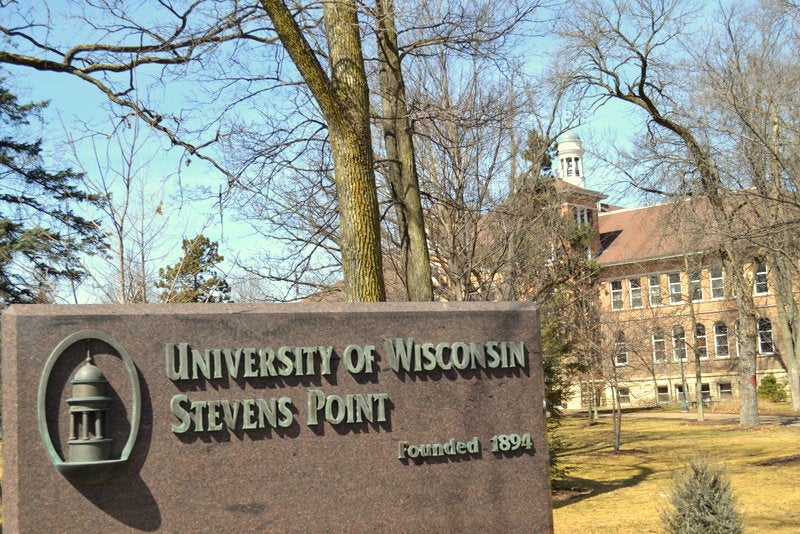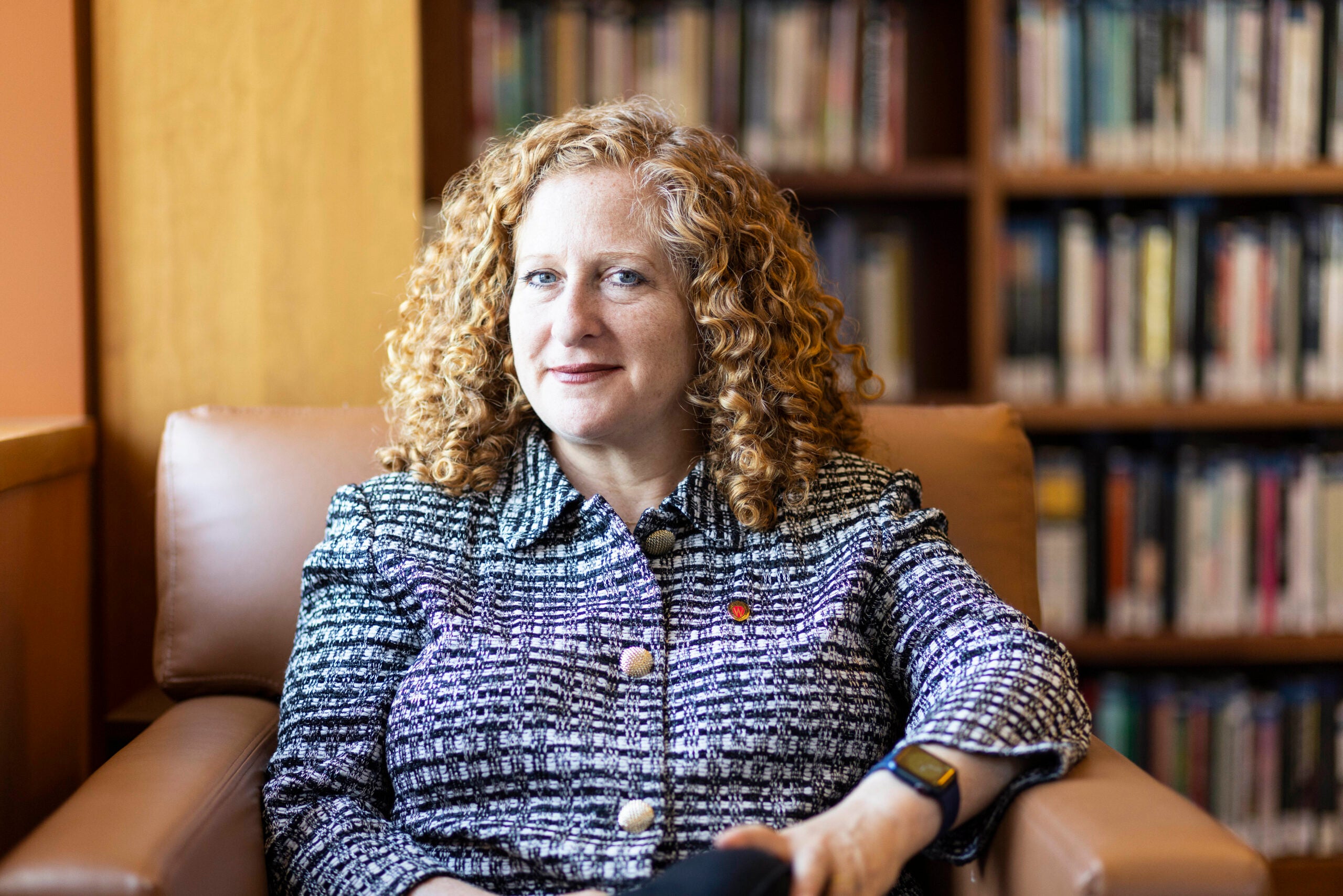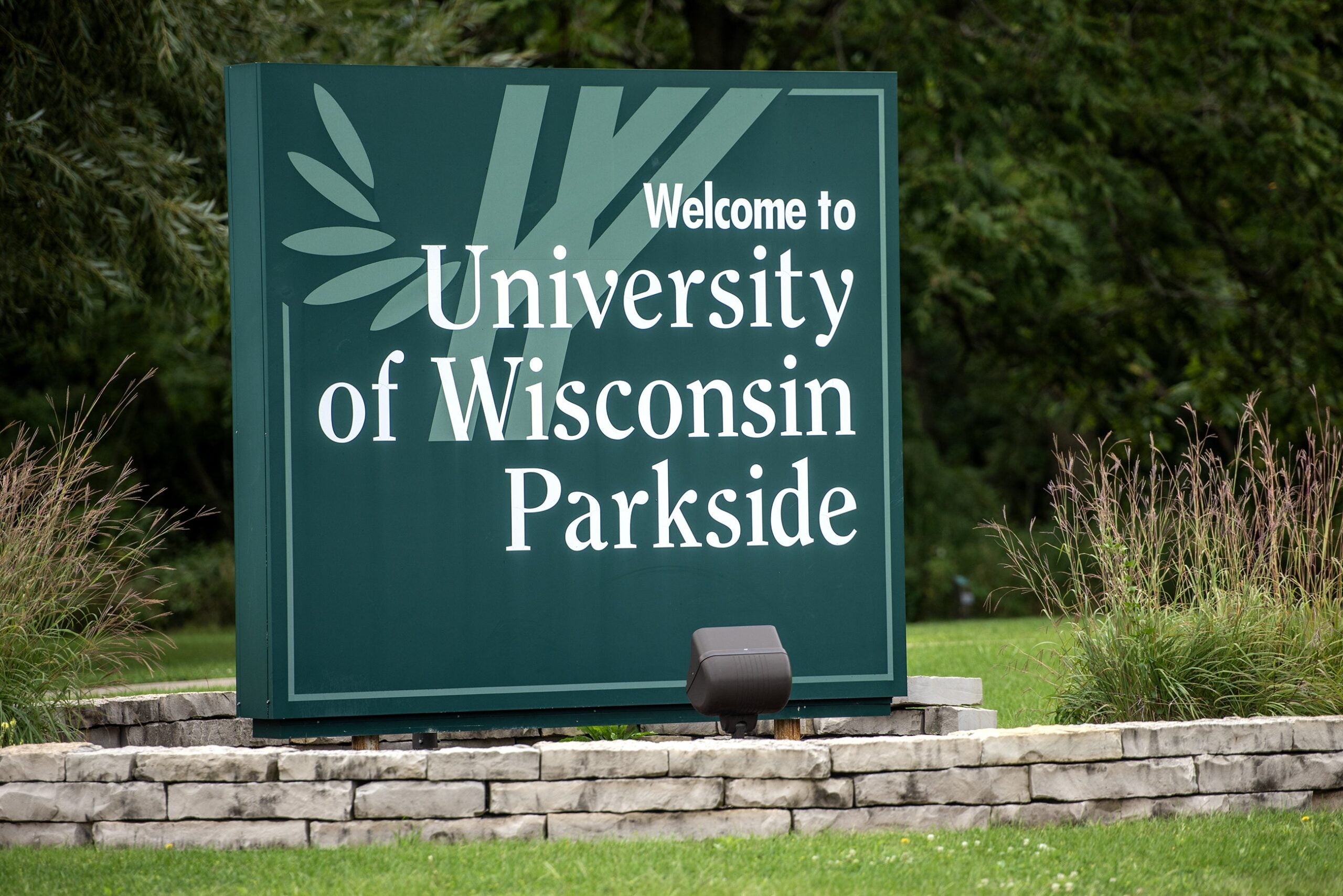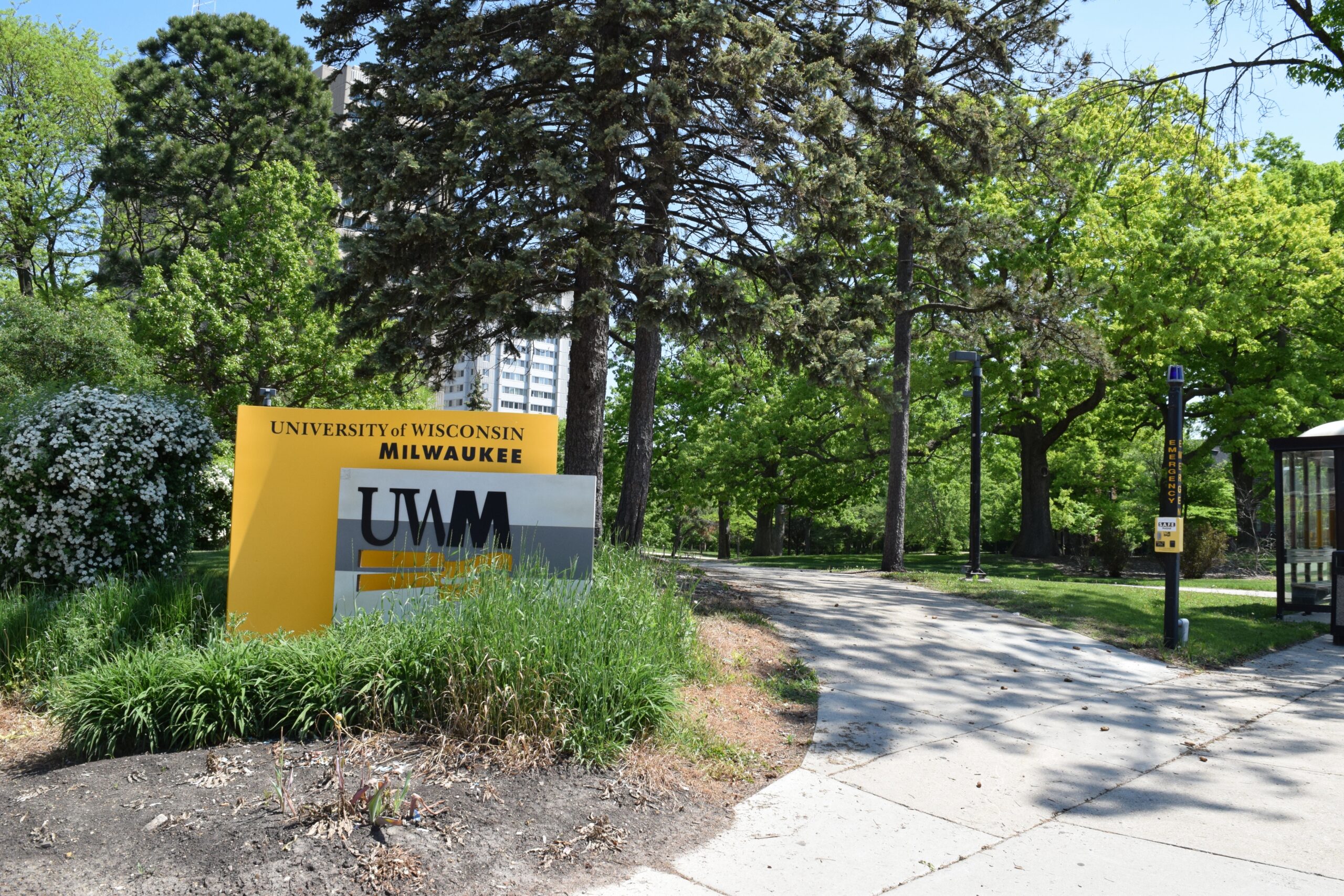A committee comprised of faculty and staff members at the University of Wisconsin-Stevens Point has released a report responding to the administration’s plan to eliminate 13 academic majors in the humanities.
The university’s “Point Forward” proposal is an effort to address a $4.5 million structural deficit caused by declining enrollment, a state imposed tuition freeze and years of state budget cuts.
The report by the Academic Affairs Committee is asking for more time to come up with another plan to address the deficit.
News with a little more humanity
WPR’s “Wisconsin Today” newsletter keeps you connected to the state you love without feeling overwhelmed. No paywall. No agenda. No corporate filter.
The administration had asked for a formal proposal by August 1, although Chancellor Bernie Patterson, in a written response to WPR, said the date was somewhat flexible.
“The August date is a target for the formal review and can be adjusted if good, constructive progress is being made,” Patterson wrote.
Craig Wendorf, Academic Affairs Committee chair and professor of psychology, said the proposed cuts to the humanities should be revisited, and that a new plan should not be rushed.
“These types of changes made rapidly, as this timeline would suggest, has the potential to really radically change the identity of the university, the reputation of the university, and the relevance of the faculty and staff that work at the university,” Wendorf said.
UW-Stevens Point Provost Greg Summers said he didn’t know if the school had time to continue debating its identity.
“I certainly think that the conversation we’re having now is about the identity of the institution, but we have been talking about our identity for a long time. We spent an entire year last year in a strategic planning process that yielded, I thought, a very focused identity around career planning and applied learning.” Summers said. “To call for more time for that same kind of conversation now, I think, is unnecessary.”
The Academic Affairs Committee report accused the administration of using program elimination “explicitly as a method to eliminate tenured faculty using a set of ill-defined metrics.”
The report also said the proposal “produced a resoundingly negative response, including student protests, a community forum, letters from alumni, national press coverage, and a local community response.”
According to the report, the programs that would be eliminated “constitute the core of the traditional liberal arts curriculum of the university.”
“The current campus identity is one that has developed over a long history, a history that should not be profoundly altered in one year,” said the report.
The 13 majors targeted for elimination are American studies, art, English, French, geography, geoscience, German, history, music literature, philosophy, political science, sociology and Spanish.
The university is considering adding majors in chemical engineering, computer information systems, conservation law enforcement, finance, fire science, graphic design, management and marketing.
In addition to adding majors, UW-Stevens Point is also considering new degree programs in aquaculture/aquaponics, captive wildlife, ecosystem design and remediation, environmental engineering, and geographic information science. It is considering advanced degree programs in business administration, natural resources and physical therapy.
Wisconsin Public Radio, © Copyright 2026, Board of Regents of the University of Wisconsin System and Wisconsin Educational Communications Board.







